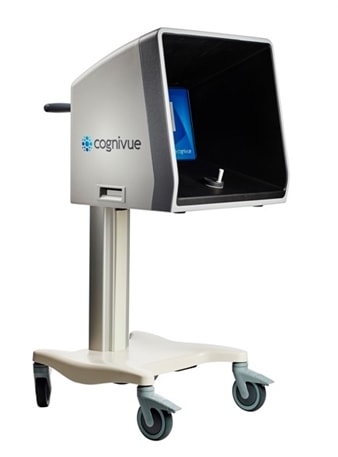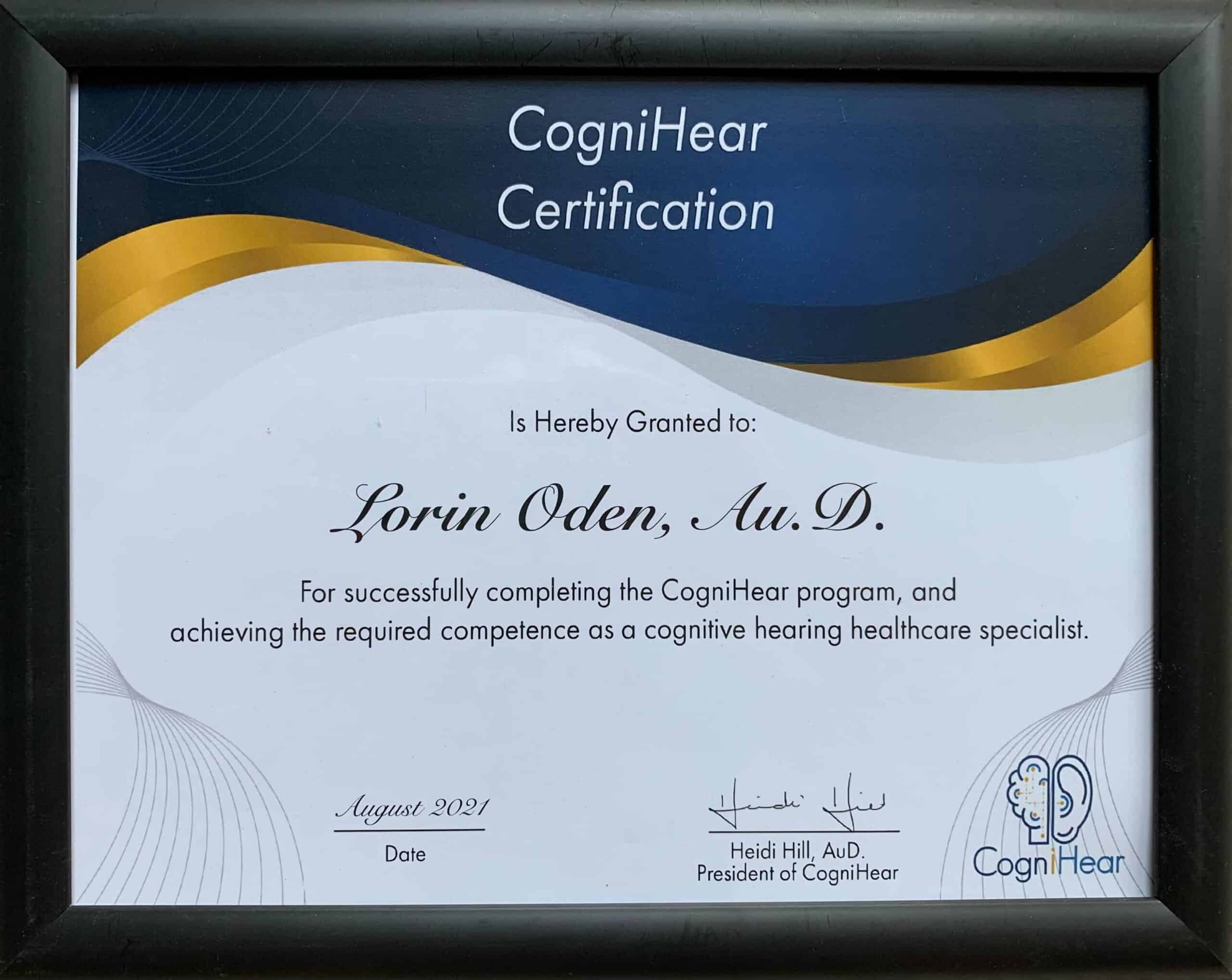Cognivue Cognitive Testing | Salisbury, NC
Hearing Solutions of North Carolina is proud to offer Cognivue cognitive testing as part of our Functional Hearing Assessment.
Cognivue cognitive testing allows us to create the best comprehensive hearing loss treatment plans, while also allowing us to have more productive conversations with general practitioners and other medical professionals. Treating hearing loss is an important part of helping you achieve your best health and well-being, and the strong link between hearing ability and cognitive function demands that we address cognitive issues alongside hearing loss.
Research in recent decades has established a strong connection between untreated hearing loss and cognitive decline. In fact, the World Health Organization links unaddressed hearing loss as one of the major factors for cognitive decline.
One out of four people say they believe that nothing can be done to decrease the risk of cognitive decline and dementia. However, mounting research indicates that as many as 40% of cases worldwide could be prevented or delayed. It's imperative that more people have access to information about cognitive decline and dementia and the modifiable risk factors behind them.

Cognitive Decline, Cognitive Impairment, and Hearing Loss


Cognitive function is not an all-or-nothing proposition. Many people may be living with cognitive impairment who would not be diagnosed with dementia. Much of this cognitive impairment could be alleviated by managing the underlying conditions that cause it. Untreated hearing loss, by depriving the brain of information, is a frequent cause of cognitive impairment.
The problem can also go in the opposite direction. Cognitive impairment makes it more difficult to hear. Because of this “feedback loop” between hearing and cognition, assessing brain health needs to be part of any comprehensive hearing loss treatment plan.
The goal of treating hearing loss is to help deliver more information to the brain, to increase ease of listening and reduce the cognitive load. Understanding how the brain interprets sound is critical to developing a successful treatment plan. This is where Cognitive cognivue testing plays a big role in addressing hearing loss.
A set of hearing aids can help improve cognitive function when used consistently, but hearing aids alone are not always enough to make sure that cognition is really at its best. Other factors come into play, as well, including:
- Cardiovascular problems
- Metabolic conditions
- Sleep disorder
- Hormonal imbalances
- Chronic pain
- Depression
- Concussion
- Stroke
- Multiple sclerosis
- Epilepsy
- Parkinson’s disease
- ADHD
- Autism
- Type-2 diabetes
- Substance abuse
- Inadequate physical activity
- Unhealthy diet
With so many potential sources of cognitive impairment, it’s important to have a way to measure cognitive ability on a regular basis. Early detection through Cognivue cognitive testing is key to making meaningful interventions and adequately managing the issue. And, as we implement interventions to improve our cognitive function, we need to know that they’re working!
Why choose Cognivue cognitive testing?
Cognivue is a revolutionary way to measure cognitive functioning. Using a series of simple tests, navigated by a single rotary control, cognivue accounts for motor difficulties while assessing cognitive function. It is not an IQ test, or a series of questions and answers. It’s a series of exercises.
About the Test
Cognivue calibrates each session for any individual’s motor skills and visual acuity. The first two exercises are calibration exercises. Your performance on these exercises helps the system understand how well you’re able to interface with the screen and rotary control. That information helps inform medical professionals about your motor skills and vision, and is also taken into account by the Cognivue system when you’re taking the rest of the test. This ensures that the Cognivue system is testing your cognitive functioning and not your motor skills throughout the remainder of the test.
Word Perception
The test uses common, 3-letter words. You’ll be asked to find the real word amongst the non-word symbols.
Shape Perception
You’ll be asked to find the shape that is different from the others. These are not normal, geometric shapes but more like characters in an unfamiliar alphabet.
Word Memory
The test uses the 30 most common 3-letter words in the English language. You’ll be asked to remember the first word shown in a sequence. Words will flash, one after another, in the center of the screen. Then the words will appear in a circle. You should move the rotary dial to the word that was shown first in the previous sequence.
Shape Memory
This part of the test uses similar shapes to the “shape perception” portion, but uses the same procedure as the “word memory” portion. Shapes are shown in the center of the screen, and then you select the one that was shown first.
